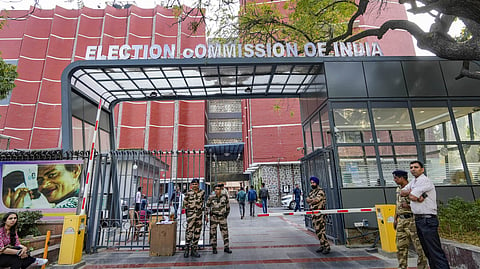

PUDUCHERRY: The Election Commission of India (ECI) has begun technical consultations with UIDAI to explore the modalities of linking Aadhaar with Voter ID cards in a bid to streamline voter identification and prevent electoral fraud.
“This is basically to work out the modalities for the linking and make it seamless,” said an ECI official, while addressing the media in Puducherry on Tuesday.
As part of broader electoral reforms, he highlighted the implementation of a new mechanism to identify and resolve duplicate entries in the Electoral Photo Identity Card (EPIC) database.
“Duplicate issues have been found and resolved in about 0.3% of the EPICs,” he stated.
A major digital upgrade is also on the horizon with the rollout of ECINET, a new integrated dashboard designed to replace nearly 40 separate websites and applications currently used by the Commission.
“The platform is undergoing final trials and is expected to be launched ahead of the Bihar elections. It will offer a unified portal for all electoral services and stakeholders,” he said.
The ECI is also reorienting its legal and procedural frameworks to support these reforms. According to Pawan, 28 stakeholders involved in various phases of the electoral process -- including electors, political parties, candidates, and election officials -- have been identified.
“Training presentations based on existing laws, rules, and ECI instructions are being developed for each group,” he added.
In a first, the ECI has initiated a special summary revision of electoral rolls ahead of bye-elections. Additionally, the maximum number of voters per polling station has been reduced from 1,500 to 1,200 to improve management and accessibility.
Efforts are also being made to maintain cleaner electoral rolls. Data on deceased individuals is now being sourced from the Registrar General of India (RGI) and updated after verification.
Further changes include a reduction in the canvassing distance limit -- from 200 metres to 100 metres from polling stations -- to reflect evolving campaign practices.
To enhance transparency, the Commission is working on faster dissemination of Voter Turnout Reports (VTR) and other electoral data through digitisation and system upgrades.